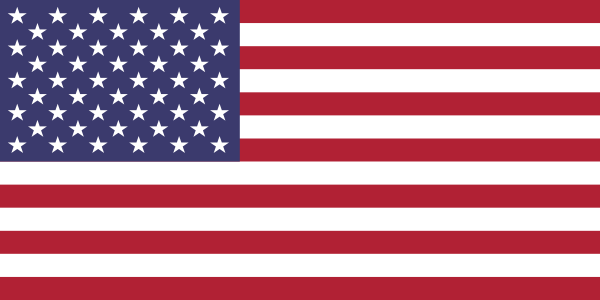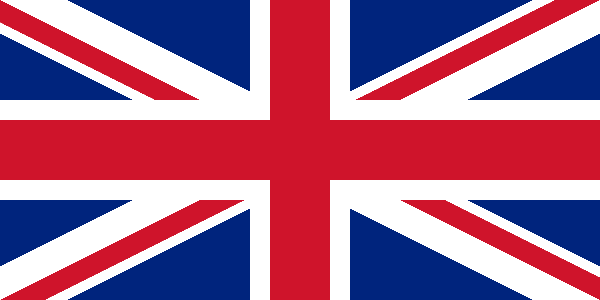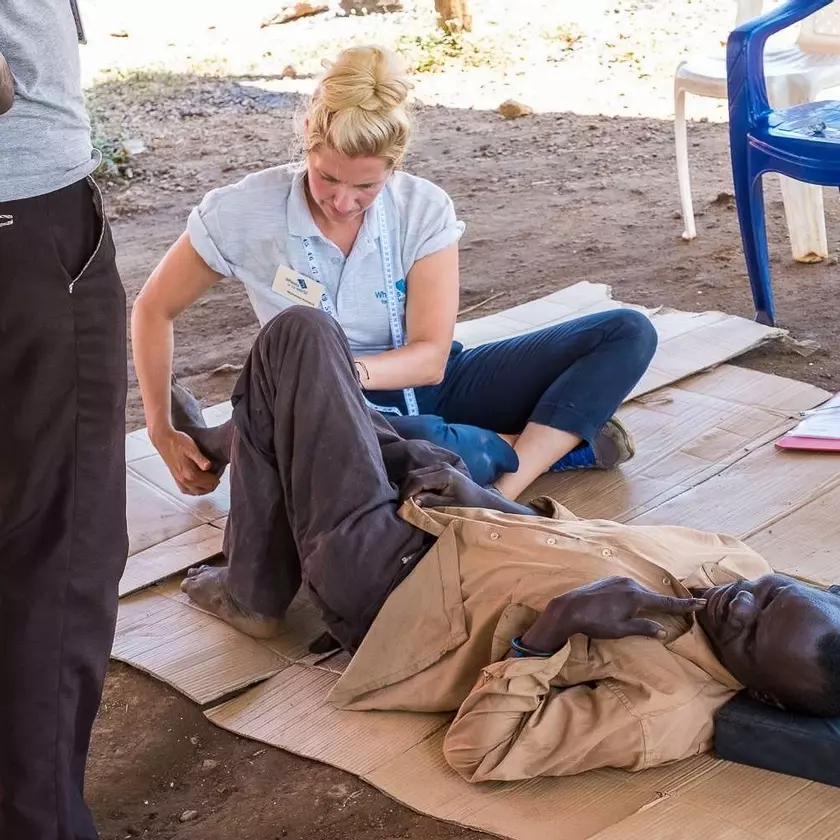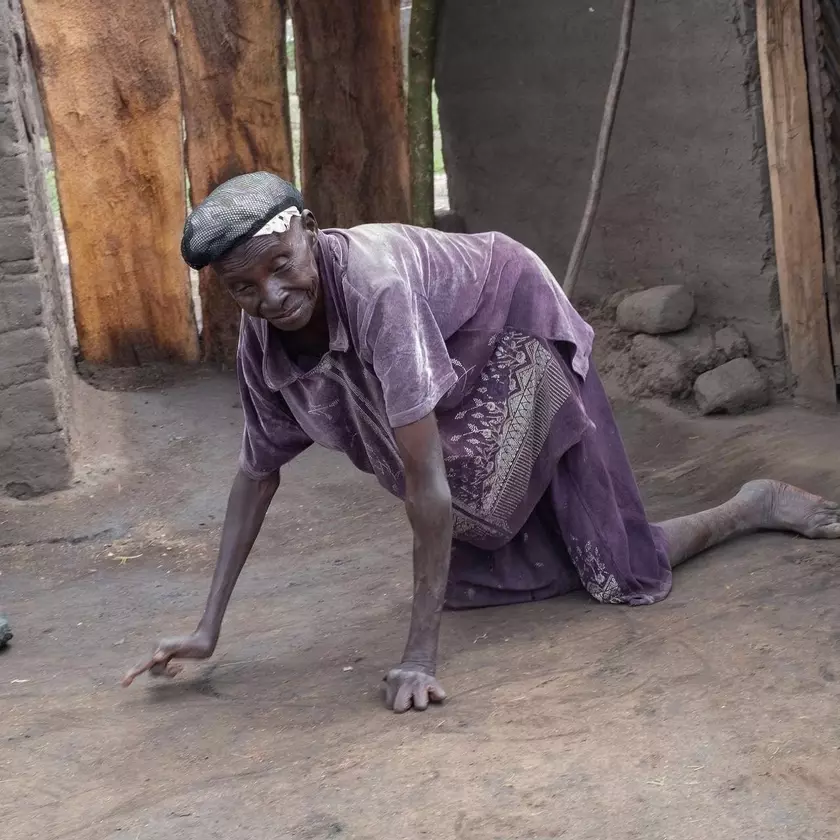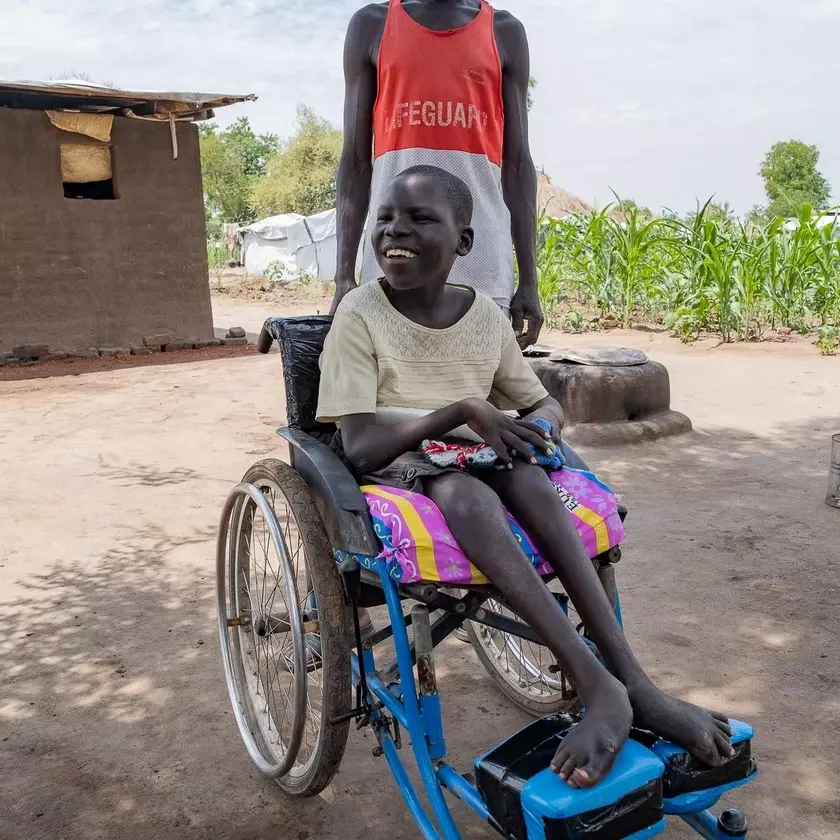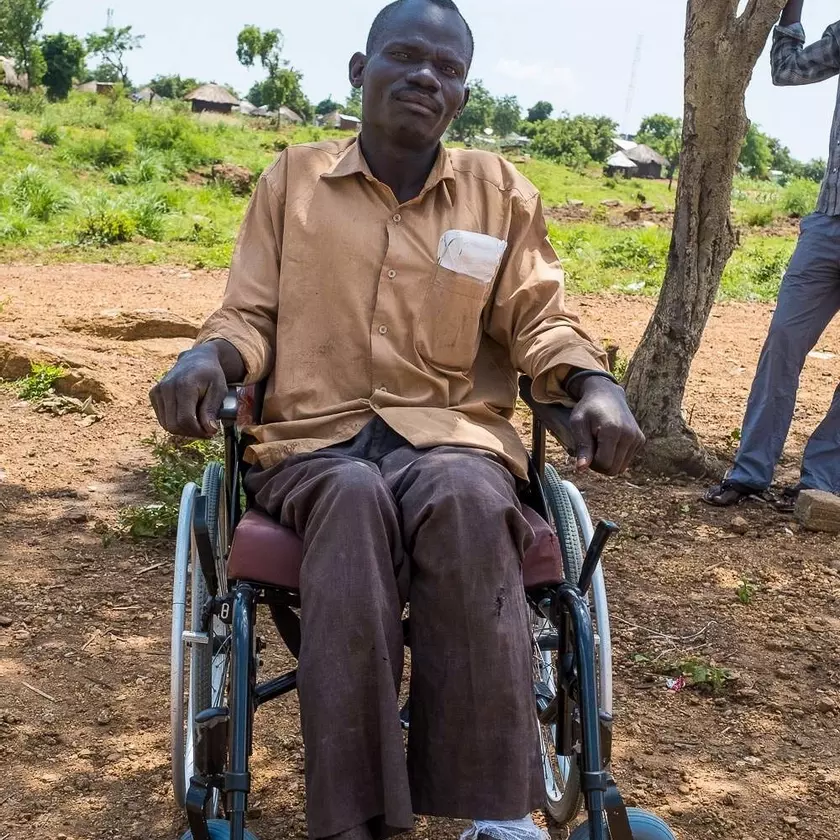A drop in the ocean?
The following blog is by HHA Volunteer Rob, following a trip to Uganda with HHA East Africa and partners Through The Roof (thanks for the photos TTR):
We stood under a torn tarpaulin. “270,000 people”. The camp commandant was explaining how many people now live in Bidi Bidi refugee settlement. “We have 19,000 people here who need a mobility aid” he said. I just stared.
We were so excited about the 124 refurbished wheelchairs provided by the amazing charity ‘Through the Roof (TTR)’ and our joint team from TTR and HHA East Africa were hard at work fitting around 30 of the chairs as we stood and talked.
“19,000”. I looked around. A few people were sat on the ground, one crawled past on their hands and knees. Therapist Jill was smiling at a woman sat in her new wheelchair. She smiled back. Our efforts seamed in that moment like a drop in the ocean.
Due to some container delays, we didn’t have our own wheelchairs for the first part of the trip. But, HHA has helped distribute over 300 wheelchairs to the refugee settlements before this trip, thanks to The Walkabout Foundation and Euromonitor International. It was heart-warming to see so many of these past chairs and tricycles changing lives and the team were able to spend some valuable time doing home visits and servicing existing chairs.
One lady told us she transports 120 litres of water on her tricycle with each journey - more than she could have done even if able bodied! One lady thanked the team of repairing the wheelchair she received 6 months ago. She said repairs would have cost her 5000 shillings, more than she had saved in the last month. 5000 shillings is roughly £1.10.
But was all this just a drop in the ocean? But then the drop in the ocean had a name.
I was asked to see a particularly destitute man in his 30’s. He was in such poor condition he couldn’t be carried, we had to send our HHA 4x4 to pick him up. He reeked of wounds. Some flies from home had travelled in the 4x4 with him and followed him out to the piece of cardboard they laid him on.
His name is Maurice (pictured above). He was an IT consultant from Juba, the capital of South Sudan. 4 years paralysed from the waist down following a road accident. He became a refugee. His wife left him. He now raises young children on his own in a mud shack, unable to move himself. His poor mobility and diet have led to pressure sores. I examined the one on his back, it was so large and deep it could have been covered with both of my hands.
We talked to him, dressed his wounds and made a plan. It appears there is free healthcare in the camp provided by an NGO, but the problem was mobility. He could not get to the clinic for daily dressings, and neighbours cannot carry him. One therapist, Marianne, saw to him. We found a right size wheelchair with large wheels for the rough terrain, along with a pressure relieving cushion.
Seeing him sat up was an obvious transformation. He looked like a different man already. He began to move around in the chair and tested the brakes. After being fitted with his chair, he saw our pastor and shared what this wheelchair means for him now. He said the wheelchair will not just help him, but he wants to visit other people in his situation with disabilities and encourage them to keep going. “Disability is not inability” he said. He also spoke about his faith in God. “Don’t forget heaven” he said. I was amazed at his faith and his positive outlook despite his difficult situation.
He did not need a lift home! A friend helped push him over the inclines of the dirt track and he pushed himself the rest of the way. As he disappeared off into the sea of white tarpaulins and scrubland, I was encouraged. “19,000”. Yes, this wheelchair distribution was a drop in the ocean. But each ‘drop’ had a name.

